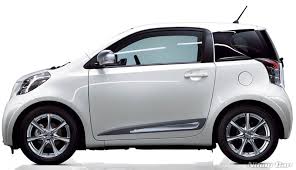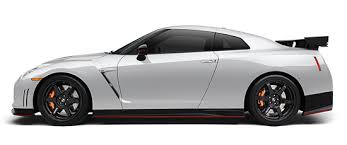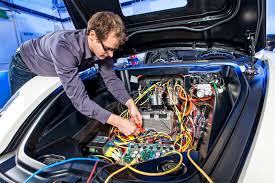A new survey has been brought out by UK-based aftermarket warranty suppliers, Warranty Direct. It has found that the most reliable car on sale right now is the Mitsubishi Lancer. Sounds straightforward enough, right? Warranty Direct uses its own data to create the tables of most and least reliable cars, based on the evidence from the claims its own customers make. Those making the most claims for repairs and replacement of parts must have the more unreliable cars, right? And anyway, Mitsubishi, being Japanese, must be reliable, surely? After all, they come with an eight-year warranty and no company is going to slap that kind of warranty on a car without reasonable confidence that they’re not going to get burned in warranty claims.
Top ten most reliable
 Actually, the top ten most reliable cars in the survey make for a somewhat eclectic mix, with one or two unexpected entries. The Lancer tops the list, and it’s followed by the Toyota iQ, Honda Jazz, Honda Insight, Nissan Tino and Hyundai i10. All of which make perfect sense. But then the Mercedes-Benz CLC? Really? The CLC was a long way from being the best Merc of all time and it was pretty shabbily built in our experience. The Mazda MX-5 is next up, but that’s followed by the Chevrolet Kalos and Ford Ka.
Actually, the top ten most reliable cars in the survey make for a somewhat eclectic mix, with one or two unexpected entries. The Lancer tops the list, and it’s followed by the Toyota iQ, Honda Jazz, Honda Insight, Nissan Tino and Hyundai i10. All of which make perfect sense. But then the Mercedes-Benz CLC? Really? The CLC was a long way from being the best Merc of all time and it was pretty shabbily built in our experience. The Mazda MX-5 is next up, but that’s followed by the Chevrolet Kalos and Ford Ka.
There is something of a pattern emerging here though. Most of these cars are skewed towards the small and affordable end of the scale, suggesting that they don’t have a lot of equipment to actually go wrong in the first place. The larger cars in the top ten, the Merc CLC and the Lancer itself, are based on older, more proven mechanical packages, which may also skew the results a little.
The least reliable
 Now, let’s look at the least reliable cars in the survey. The top ten consists of the Nissan GT-R, Mercedes-Benz GL, Bentley Continental GT, Mercedes-Benz R-Class, Audi Q7, Mercedes-Benz M-Class, BMW M3, Skoda Superb, Mercedes-Benz S-Class and BMW 7 Series. Hmmm. The skewing here is, clearly, towards the higher end of the automotive scale, with more equipment and more expensive parts. Except for the Superb, which seems something of an anomaly in this category, not least because in pretty much every over major reliability survey, Skodas tend to do exceptionally well, usually right up with the Japanese and Korean brands.
Now, let’s look at the least reliable cars in the survey. The top ten consists of the Nissan GT-R, Mercedes-Benz GL, Bentley Continental GT, Mercedes-Benz R-Class, Audi Q7, Mercedes-Benz M-Class, BMW M3, Skoda Superb, Mercedes-Benz S-Class and BMW 7 Series. Hmmm. The skewing here is, clearly, towards the higher end of the automotive scale, with more equipment and more expensive parts. Except for the Superb, which seems something of an anomaly in this category, not least because in pretty much every over major reliability survey, Skodas tend to do exceptionally well, usually right up with the Japanese and Korean brands.
Most & least reliable brands
 Next up are the most reliable brands, which are, in descending order, Daihatsu, Honda, Suzuki, Toyota, Mazda Lexus (all fine so far), Ford (really? A bit of a surprise), Rover (seriously?), Nissan (fine) and Renault (ah, come on…).
Next up are the most reliable brands, which are, in descending order, Daihatsu, Honda, Suzuki, Toyota, Mazda Lexus (all fine so far), Ford (really? A bit of a surprise), Rover (seriously?), Nissan (fine) and Renault (ah, come on…).
The least reliable brands, again in descending order, are Bentley, Land Rover, Porsche, Chrysler, Alfa Romeo, Audi, Ssangyong, Mercedes-Benz, Jaguar and BMW. Now, there are a couple of things to note here. First off, any survey that quotes Rover as being in the top ten most reliable brands has something odd going on in either its methodology or its figures. Secondly, the least reliable brands list is again skewed towards the more highly-equipped end of the scale.
Digging a little deeper
 And here’s the issue – Warranty Direct’s system combines the number of times a vehicle or a brand has a claim made against it with the cost of the repair of that brand. That explains the appearance of Renault and Rover in the reliable category – when they go wrong, they’re cheap to fix. It also probably explains the appearance of brands such as Porsche, Audi, Mercedes and BMW in the unreliable category – when they do go wrong, they’re more expensive to fix. But it doesn’t mean they go wrong more than a Rover or a Renault.
And here’s the issue – Warranty Direct’s system combines the number of times a vehicle or a brand has a claim made against it with the cost of the repair of that brand. That explains the appearance of Renault and Rover in the reliable category – when they go wrong, they’re cheap to fix. It also probably explains the appearance of brands such as Porsche, Audi, Mercedes and BMW in the unreliable category – when they do go wrong, they’re more expensive to fix. But it doesn’t mean they go wrong more than a Rover or a Renault.
There is another item to consider. Who is more likely to take out an (expensive) aftermarket warranty? Someone buying a high-end car, possibly at a knock-down price, who is trying to stave off the potentially crippling costs of replacing major components? Or someone buying a small, affordable family car which has reasonable running costs? You take my point – the very fact that these cars are being covered by an aftermarket warranty is a form of confirmation bias.
Which is not to say that the Warranty Direct survey is all wrong. Of course it’s not, and it’s yet another useful tool when it comes to deciding on and shopping for your next second hand car, but it’s not a foolproof buy-one-of-these list, and nor is any reliability survey. Like pre-election polls or the racing tips in the paper, it’s both a snapshot of a narrow reality and a scientific guess that what happened before will continue to happen into the future. It also ignores certain realities, such as the fact that it is only a decade ago when Mitsubishi was under investigation by the Japanese authorities for trying to cover up serious reliability and safety defects in many of its vehicles, fearful that its reputation for solidity would melt away.
Conclusion
Basically, take any reliability surveys you encounter with a pinch of salt. And remember that a reliable car need not come from a reliable brand. A well-cared for, properly serviced Alfa Romeo can be a safer bet than a Mitsubishi Lancer which, under the assumption that its reliability is sacrosanct, has been abused and not cared properly for.
In other words, buy on condition and knowledge of history of the individual car you’re looking at, not what the latest survey says.